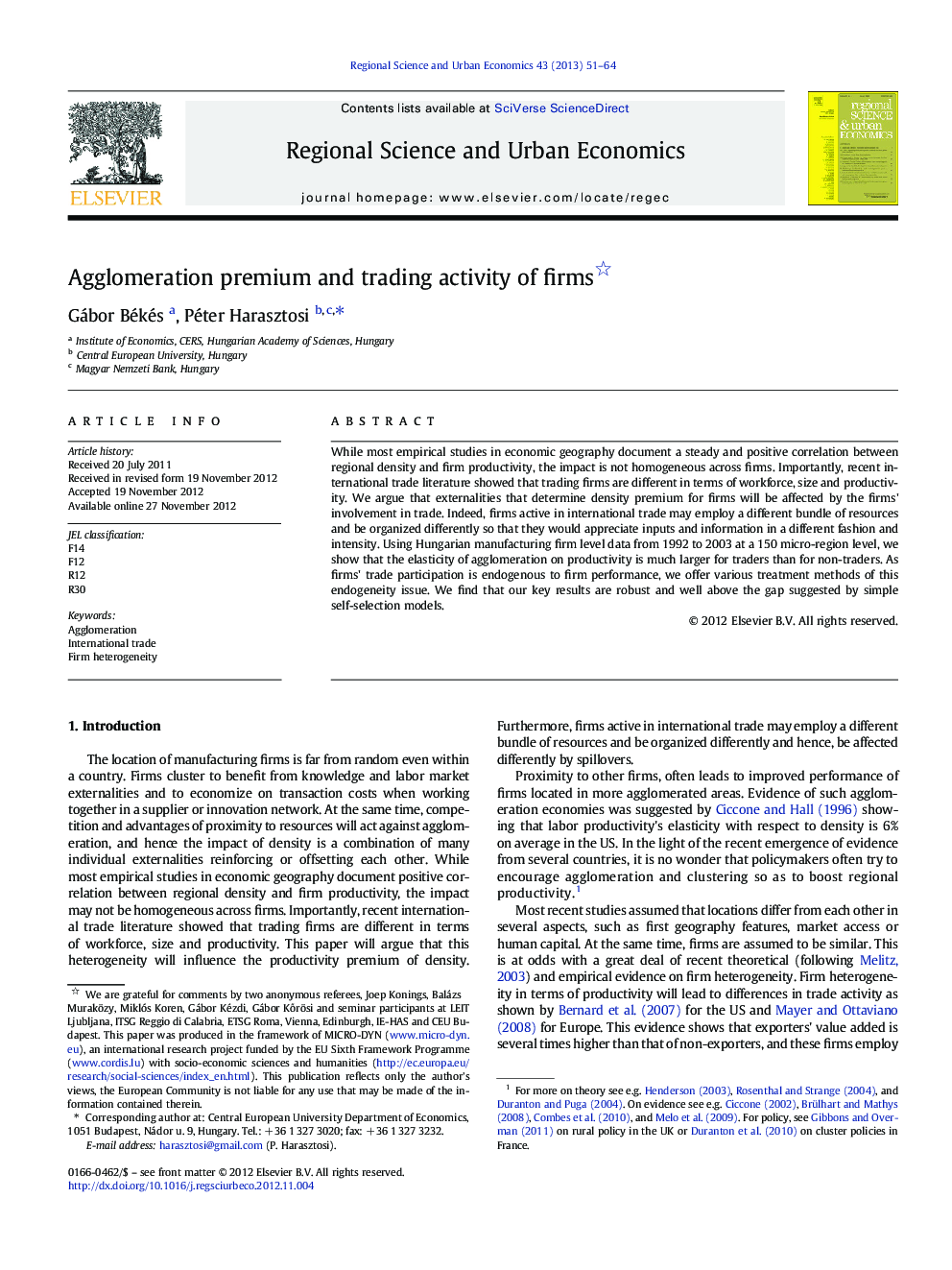| Article ID | Journal | Published Year | Pages | File Type |
|---|---|---|---|---|
| 983993 | Regional Science and Urban Economics | 2013 | 14 Pages |
While most empirical studies in economic geography document a steady and positive correlation between regional density and firm productivity, the impact is not homogeneous across firms. Importantly, recent international trade literature showed that trading firms are different in terms of workforce, size and productivity. We argue that externalities that determine density premium for firms will be affected by the firms' involvement in trade. Indeed, firms active in international trade may employ a different bundle of resources and be organized differently so that they would appreciate inputs and information in a different fashion and intensity. Using Hungarian manufacturing firm level data from 1992 to 2003 at a 150 micro-region level, we show that the elasticity of agglomeration on productivity is much larger for traders than for non-traders. As firms' trade participation is endogenous to firm performance, we offer various treatment methods of this endogeneity issue. We find that our key results are robust and well above the gap suggested by simple self-selection models.
► We estimate the agglomeration premia for trading and nontrading firms for Hungary. ► Premium from dense labour markets for traders is at least twice as high. ► Cross group difference is above the gap suggested by simple self-selection models.
